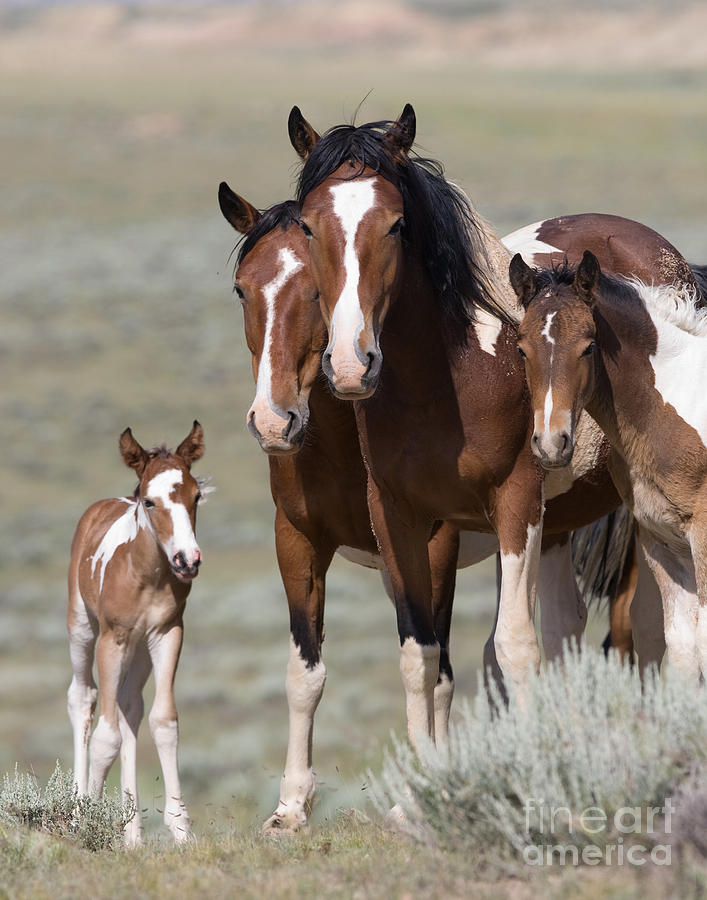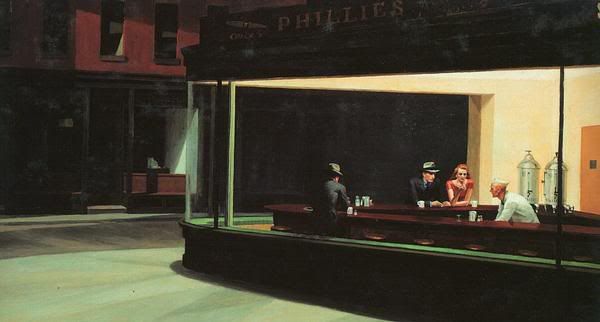This is going to be short and sweet, because last night was absolutely insane, so I'm writing this early in the morning before I go to school.
Janie is lost. She has all these ideas of what she wants her life to be, but no idea how to make those ideas reality. Her main tactic is to wait. As my father always says, "good things come to those who wait." Janie only knows this rule. She waits with Logan until Joe comes along, but then realizes that Joe isn't who she thought he was, so she literally waits until he dies. She doesn't run off again, she just waits.
And this tactic may actually work for her. Tea Cake seems like a nice guy. Of course, Joe seemed great too. For Janie's sake, I hope Tea Cake is the true love she's looking for, because I'm pretty sure he's the last guy she'll get, since the first chapter is her coming home after leaving the town with Tea Cake.
Friday, December 12, 2014
Thursday, November 27, 2014
A Class(mate) That I Am Thankful For
I don't want to say that I am thankful for one classmate in particular, because that would be a lie. Rather, I am thankful for our class as a whole. Here, I have found a group of people I like to work with, who are intelligent, kind, and willing to work hard. Thank you all for making me laugh, for listening to me, and for offering such interesting arguments and points of view. Thank you Mr. McCarthy for making English a fun and interesting class. I am thankful for all my classmates, who make me look forward to first period every day.
Sunday, November 23, 2014
A Principle We Should Keep
"Blood makes you related, loyalty makes you family." This fundamental truth is what keeps families together to this day. Sure, blood may bind you to one another, but love and loyalty are what keeps a family together. And sometimes, blood ties are not even a factor. I know there are people in this world I love like family that are not related to me by blood. This is one of the most important principles in our world today. Without this, there would be no close family relationships, no wonderful groups of friends, no ties that are so awesome that you would die for one another.
So what would we do if the world fell down around us, if life as we know it ended? Could this principle survive? I feel that it should. Family loyalty is what kept the father and son together in The Road and a lack of which killed the mother. How many people would have survived if their family (be it blood or friends) didn't turn on them, or chose to fend for themselves, but instead banded together and helped each other? And not like the gangs in the book, but instead a larger version of the father and son, protecting each other, feeding each other, and doing whatever they could to ensure that all survived.
This principle is also what helps make people who they are. Your family defines you (again, not just blood but friends). If the bad guys, the cannibals, had kept their family, would they still eat the flesh of their own? I don't think so. The disapproval of your family is oftentimes enough to keep you from doing something, especially something you're already nervous, already unsure about, like cannibalism.
When the world falls apart, family loyalty will help people to keep it together.
So what would we do if the world fell down around us, if life as we know it ended? Could this principle survive? I feel that it should. Family loyalty is what kept the father and son together in The Road and a lack of which killed the mother. How many people would have survived if their family (be it blood or friends) didn't turn on them, or chose to fend for themselves, but instead banded together and helped each other? And not like the gangs in the book, but instead a larger version of the father and son, protecting each other, feeding each other, and doing whatever they could to ensure that all survived.
This principle is also what helps make people who they are. Your family defines you (again, not just blood but friends). If the bad guys, the cannibals, had kept their family, would they still eat the flesh of their own? I don't think so. The disapproval of your family is oftentimes enough to keep you from doing something, especially something you're already nervous, already unsure about, like cannibalism.
When the world falls apart, family loyalty will help people to keep it together.
Saturday, October 25, 2014
"Its A Hard Trade Being A Man"
The title is a quote from Hemingway, as verbatim as you can get from a movie. This idea reflects both his life and his writing. Often, the male characters in Hemingway's shorts stories get it rough: Macomber ends up dead, the old waiter is a severe insomniac, the Indian man cuts his throat, Manuel is badly injured, Nick Adams is scarred both mentally and physically and very possibly suffering from PTSD. Why does Hemingway treat his male characters so? Of course, with Nick he is reflecting on his own life experiences, and the old waiter is Hemingway by all but name and trade. While both Hemingway and Macomber are safari hunters, Hemingway was not shot by his wife. Who or what does Macomber symbolize? Hemingway writes very almost nothing without meaning. Why does he have to die? The Indian man is also an enigma. He cuts his throat after his wife has an extremely difficult time birthing someone else's child, Nick Adam's uncle's child. Hemingway also had several affairs during the course of his marriages. Is he reflecting here on the consequences of those affairs? Usually, they caused his current marriages to end. The Indian man who cut his own throat could be a symbol for Hemingway's marriages; when the affair occurs, the marriage dies. Hemingway could also be suggesting that the ending of a marriage is not his fault. His biographical character, Nick Adams, stands to the side and watches his father discover the dead man. He has no contact with him and did nothing to drive him to such extreme lengths. Could Hemingway be suggesting that the marriages where killed by whichever woman he was married to at the time? And does he feel bad about putting his children through al of this every time he gets a divorce? The woman giving birth could symbolize his children, struggling every time he changes wives. Whatever Hemingway meant and symbolized in his short stories, men having a hard time is an almost constant theme.
Saturday, September 27, 2014
Six Word Stories
Search: How To Hide A Body
I Can No Longer See Shore
I'm Free Today, But Not Tomorrow
One Man Can Destroy The World
Don't Cry; I'm Not Afraid Anymore
One Horse, One Man, Three Crowns
Sunday, September 21, 2014
John Proctor: Hero or Stooge?
Though it is never said, John Proctor hangs. He hangs for a crime he is innocent of, all because he would not let the world know that he bowed and confessed. He was charged because he tried to fix things; he tried to make the wold see that Abigail was lying, that this entire event was just people getting back at people and lying so that they wouldn't hang. The real John Proctor, as he stood at the gallows about to hang, perfectly recited the Lord's Prayer, amazing and confusing the people who watched. A witch was not supposed to be able to pray. In a way, he got the final word, showing Salem that the people they hung could not all be witches. Since the play ends with Proctor being dragged off, I like to imagine that it did end this way.
So, hero or stooge? The answer is both, and neither. John Proctor was human, and like any human, he showed both traits. He showed the hero aspect when he challenged the court, knowing full well he would be in trouble for it. And yet he challenged them, not only to save his own wife, but all those who were innocent. He also ruined his name to help the court see how guilty Abigail was, admitting to his affair with her, and admitting to a theocratic court that he had broken one of the Ten Commandments. This was enough to get him into major trouble, but he jumped and pulled Abigail down with him.
And yet he was also a stooge, a pawn. People used him, and he had no say in the matter. Perhaps the higher-ups made an example of him, killing him who would defy the court. Because the people running the trials would have power, power they had never know, power over life and death. They would not want to give up that power, because people who are exposed to it rarely want to fall down to a powerless state. So when Proctor came in claiming that all this was false, that the children had made everything up, they could not let that be true, for if it was true, not only would they be accused of killing innocent and have to live with that guilt, they would lose what power they had over the people of Salem.
So, hero or stooge? The answer is both, and neither. John Proctor was human, and like any human, he showed both traits. He showed the hero aspect when he challenged the court, knowing full well he would be in trouble for it. And yet he challenged them, not only to save his own wife, but all those who were innocent. He also ruined his name to help the court see how guilty Abigail was, admitting to his affair with her, and admitting to a theocratic court that he had broken one of the Ten Commandments. This was enough to get him into major trouble, but he jumped and pulled Abigail down with him.
And yet he was also a stooge, a pawn. People used him, and he had no say in the matter. Perhaps the higher-ups made an example of him, killing him who would defy the court. Because the people running the trials would have power, power they had never know, power over life and death. They would not want to give up that power, because people who are exposed to it rarely want to fall down to a powerless state. So when Proctor came in claiming that all this was false, that the children had made everything up, they could not let that be true, for if it was true, not only would they be accused of killing innocent and have to live with that guilt, they would lose what power they had over the people of Salem.
Sunday, September 14, 2014
There Goes The Neighborhood
"No identification of self or mission. No interference with the social development of said planet. No references to space or the fact that there are other worlds or civilizations." This is the Prime Directive, as told by Captain Kirk. Basically, it means that any civilization encountered, especially those less developed than the Federation, should not be made aware of the technology advances made in other parts of the universe or that there is other lie. The explorer cannot identify himself or interfere with the planet's development. If the explorers and settlers were members of Star Fleet, they surely would be disciplined for breaking the Directive.
Imagine if a ship landed on Earth today. Maybe they bring flying cars and anti-pollution devices. They tell us that there are other worlds, other civilizations out there. Then they call you savages, and tell you your religion is wrong, and you should, for example worship the sun and the moon. Then they begin to take over your land.
At first there would be disbelief. Likely, the Native Americans were skeptical, thinking maybe these people were gods or spirits. The first major conflict would be the language barrier. Neither knew the other's language. Being unable to talk to the settlers, the Native Americans would have no way to tell them, "No. THis is my land." The only way to show that would be to force the settlers off. This would lead to bloody conflicts, for the settler's weapons were far superior, but the Native Americans knew the land better.
There would be outright anger at the attempts to convert. The Native American's had been following their religion for hundreds of years. You can't suddenly turn your back on all that history. And for the very spiritual, to be told that your religion is false, and that you will go to Hell for this type of worship, this would be the worst insult possible. People have always fought for what they believed, and the Native Americans were not exempt.
People do not give up their way of life easily. Looks at the Civil War, World War II, or just about any major conflict; people are fighting for their way of life. The Native Americans were no different. They fought, but ultimately, they lost. Their conflicts stemmed from one major point; the settlers began to change things: the land, the religion, the level of technology. They violated the Prime Directive, and in doing so began the downfall of a civilization that had lasted for hundreds of years.
Imagine if a ship landed on Earth today. Maybe they bring flying cars and anti-pollution devices. They tell us that there are other worlds, other civilizations out there. Then they call you savages, and tell you your religion is wrong, and you should, for example worship the sun and the moon. Then they begin to take over your land.
At first there would be disbelief. Likely, the Native Americans were skeptical, thinking maybe these people were gods or spirits. The first major conflict would be the language barrier. Neither knew the other's language. Being unable to talk to the settlers, the Native Americans would have no way to tell them, "No. THis is my land." The only way to show that would be to force the settlers off. This would lead to bloody conflicts, for the settler's weapons were far superior, but the Native Americans knew the land better.
There would be outright anger at the attempts to convert. The Native American's had been following their religion for hundreds of years. You can't suddenly turn your back on all that history. And for the very spiritual, to be told that your religion is false, and that you will go to Hell for this type of worship, this would be the worst insult possible. People have always fought for what they believed, and the Native Americans were not exempt.
People do not give up their way of life easily. Looks at the Civil War, World War II, or just about any major conflict; people are fighting for their way of life. The Native Americans were no different. They fought, but ultimately, they lost. Their conflicts stemmed from one major point; the settlers began to change things: the land, the religion, the level of technology. They violated the Prime Directive, and in doing so began the downfall of a civilization that had lasted for hundreds of years.
Thursday, September 4, 2014
Me
Who am I? That isn't a question that can be answered in 200 to 400 words. People are so much more than that, a lifetime of experiences. But in a nutshell, here I am.
My passion is horses. Here, I am with my horse Harley. I have been riding since I was 7 years old, and have had Harley since I was 9. Most of my stories and art are centered around horses. They are my world.
I also love the theater. I have acted in 11 plays with the Munroe Park Theater Guild, and have stage-managed 4 plays. Currently, we are woking on Who's Afraid of Virginia Woolf?
Reading and writing stories is another pastime of mine. My favorite books are the Eragon series, the Kay Scarpetta series, the Dresden Files, and just about any crime thriller or fantasy book.
I am a member of the school band and play the trumpet. I am a returning member of Science Olympiad, having gone to state with the team last year. I am an incoming NJHS member and Eco-Club participant.
Country is my favorite (and only) music genre. Toby Keith and Zac Brown Band are my favorite artists. Some of my favorite songs are Chicken Fried, American Soldier, Beer For My Horses, The Outsiders, Bullets In The Gun, and so many more. I could go on for pages.
Talking about myself is much harder than I expected, especially over the Internet. Communication is so much easier face to face, where a person can continue or stop talking based on the signals the listener puts out. Communication is, of course, meant to be face to face, but humans have adapted to speaking over a distance, due to technology such a the telephone and e-mail. Those two sentences were easier to write than most of this post. I really am better at writing about things that aren't myself.
Subscribe to:
Comments (Atom)





